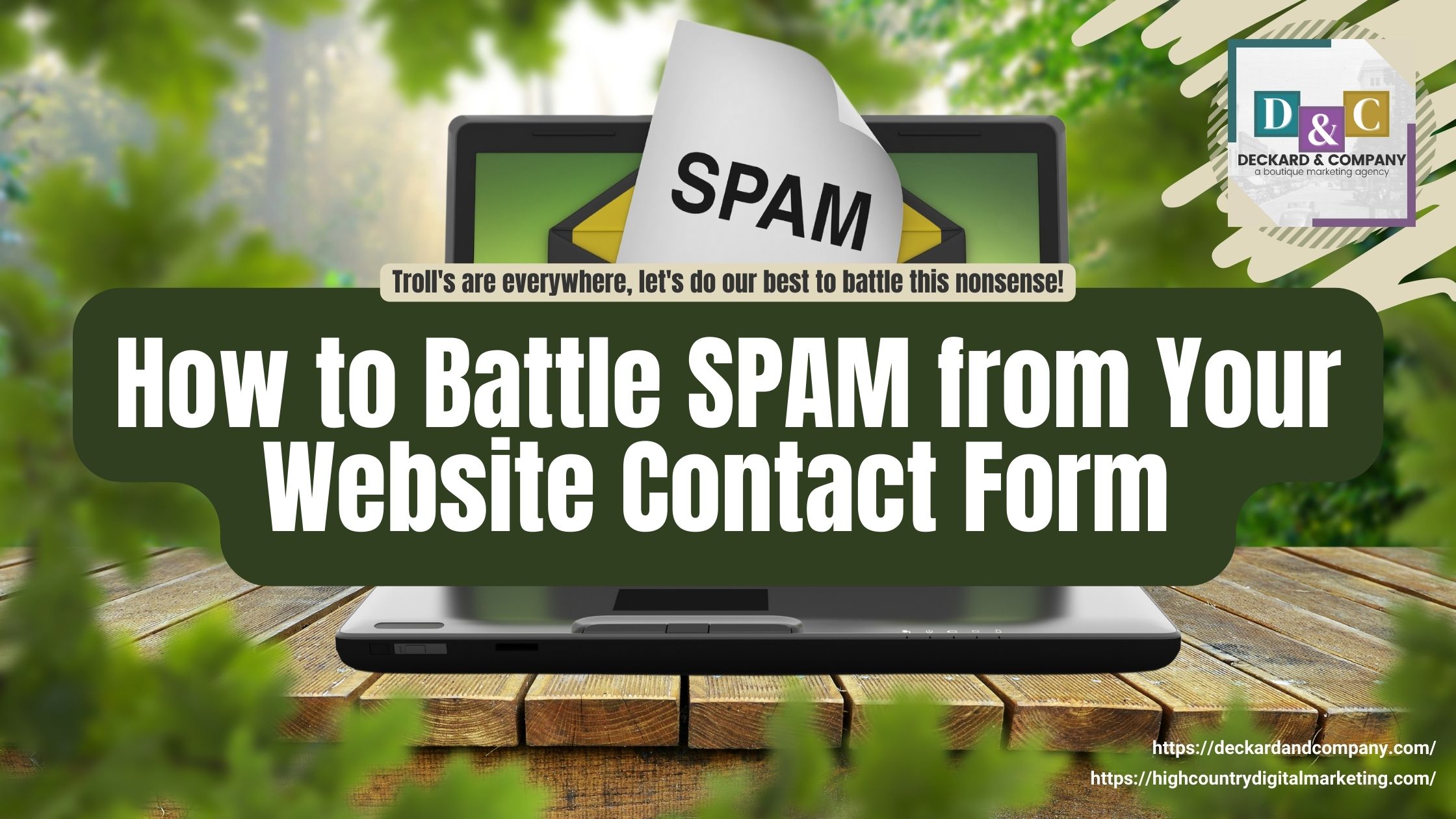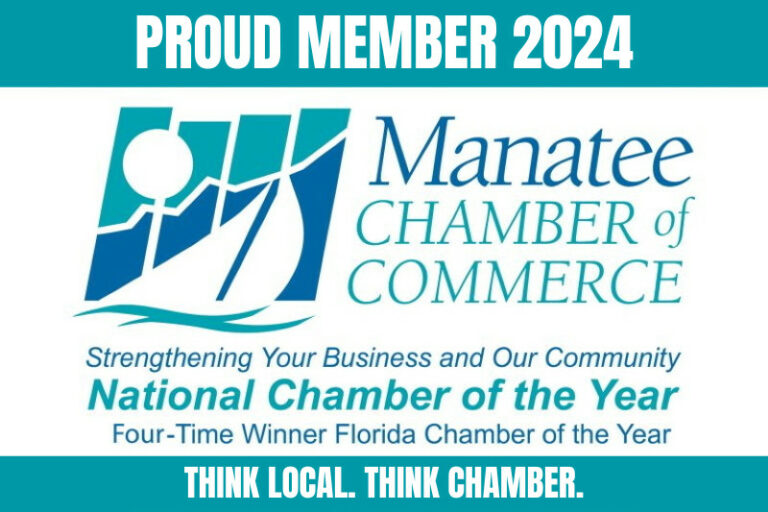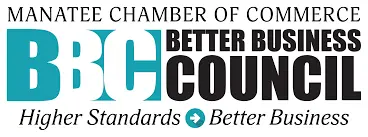We’ve said it before: Marketing and communication go hand-in-hand. And your website is a great tool for communicating with your audience and encouraging them to communicate with you.
So what do you do when your website contact form starts getting flooded with spam?
Spam of any kind is annoying and distracting. And when it comes from your website’s contact form, it can even interfere with important messages from your actual clients.
Here’s what you should know about contact form spam, and how to battle it.

How Do Website Contact Forms Work?
A website contact form is a page on your website that contains fill-in-the-blank spots, or “fields,” where people can leave their name and contact information, and even a message, for you—all without ever leaving your website. Here’s the contact form on our Bradenton website. And this is the one for our Elk Park, North Carolina location.
When we design your website and set up your contact form, we can do any number of things with this information—like send it directly to one or more email addresses, or just add it to a database of contact info.
Your website contact form can also send a confirmation email back to the original sender, just to let them know that their message was received. (This also helps to confirm that they gave you a real email address.)
What is Spam Communication?
“Spam” nowadays refers to pretty much any generic message sent to a bunch of different places in the hopes that at least a small number of those many recipients will respond or click on a link. Spam is more about getting you to do something than it is about making sincere contact with you and your small business.
They just want your clicks, or your information, or your money.

Where Does Spam Come From?
Spam comes from any number of nefarious places. It could be a bot to get you to click on websites that want the traffic. Or to get you to click on something that will install itself on your computer to steal your info.
Spam can also come from real live people playing the numbers game (or using underhanded techniques) to start a conversation. They might be “spam spiders” in other parts of the world. Or they might just be copy-and-paste annoyances working right here in Bradenton or Sarasota.
Once they have you on the line, they’ll try to sell you something.
And that’s a real problem we’re seeing from our small business clients in Florida as well as North Carolina: Spam that comes from so-called “marketing companies” hoping to net unsuspecting small businesses into crappy, unnecessary services.
Why Do People Spam Website Contact Forms?
Most email providers (like Gmail) and email account management tools (like Outlook) now have really effective ways of identifying spam emails and separating them into your spam (or “Junk”) folder. That way, you know not to take the emails seriously. Plus, they’re not cluttering up the real messages that you actually want to read and respond to.
But if a message comes through your website’s contact form, it looks legit.
So website contact form spam is just one more way to try to get around our safeguards and get our attention.

How Can Your Expert Web Designer Battle Website Contact Form Spam?
Fortunately, there are things we as a Sarasota-Manatee web design company can do to deter contact form spam.
How Website Designers Can Deter Contact Form Spam:
Rename Fields: A low-tech way to fool bots is just to avoid using the field names that they’re looking for—for instance, labeling a field “human” instead of “name.” The problem, of course, is that this may also confuse real people and you’ll wind up having a less-effective contact form.
Include random quiz questions on your form: Similarly low-tech, you can ask “What’s your favorite state?” among your form fields, and make it mandatory. Bots won’t know how to answer.
Disable automatic email responses: Some spammers are just trying to get your company’s email address. We can design a “thank you for your submission” web page as an alternative to an automated confirmation email.
Captcha: Captcha is an online tool that helps to confirm that a real person (not a bot) is filling out the form. CAPTCHA is actually an acronym, not a brand name, and there are many different types of captcha services.
Honeypot: Kind of the opposite of discouraging spammers, a honeypot design draws bots to it and tricks them into showing themselves, which then locks them out of your site.
Spam screening plugins: These tend to cost money, and the companies are in an arms race with spammers to make them effective. That means you need a knowledgeable web manager to keep track of which ones are working, and worth the cost.
How Can Small Business Owners Deter Website Contact Form Spam?
As you can see, there are a lot of options to mitigate bots on your contact forms. Unfortunately, real people who are trying to scam you are harder to fool.
As a small business owner, you will be the target of underhanded “marketing experts” and “SEO companies” who will paste messages into your contact form to tell you that you need them.
The biggest thing to remember when battling these kinds of marketing/SEO spammers: They’re not what they claim to be. A successful, effective website marketing company doesn’t need to spam contact forms.
If you’re being bothered by website contact form spam, delete those messages immediately. Then go ahead and reach out to Deckard & Company, a boutique web design and digital marketing business in Bradenton, Florida and Elk Park, North Carolina.




